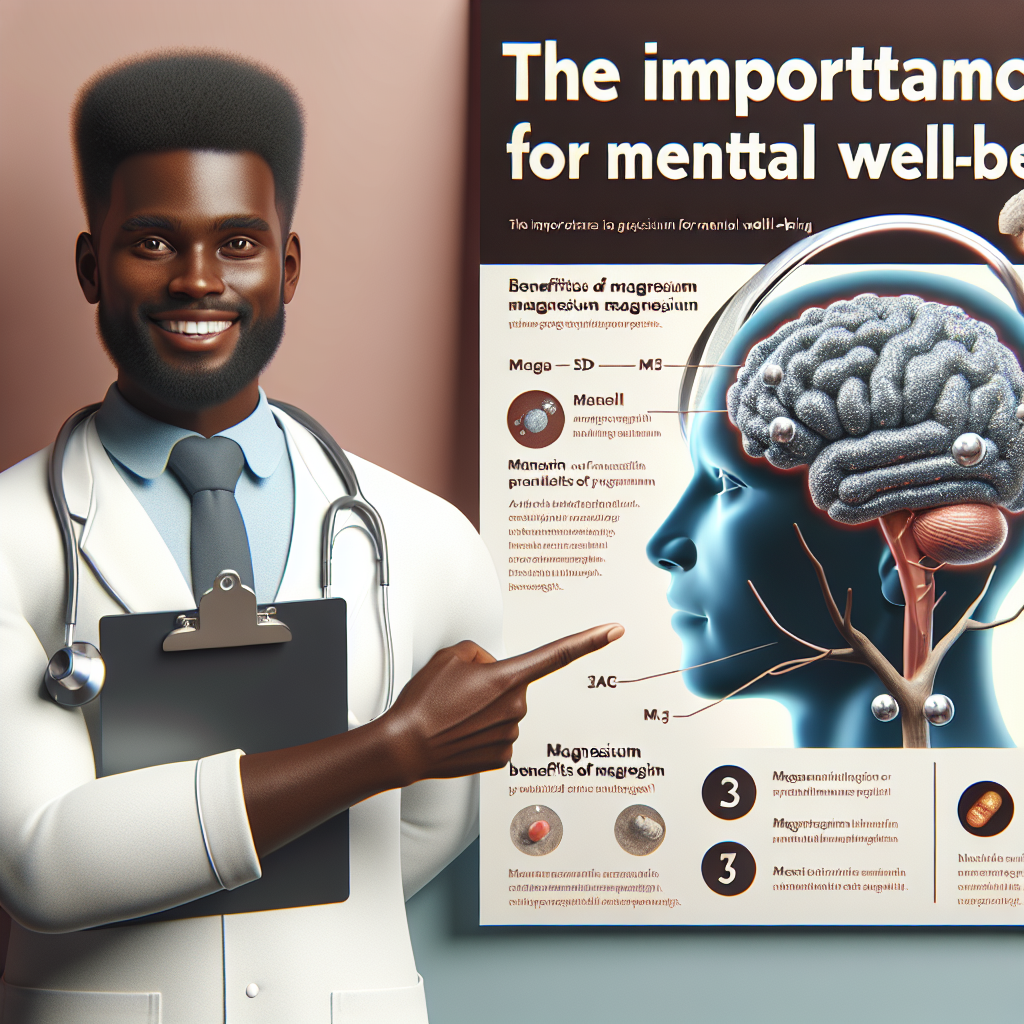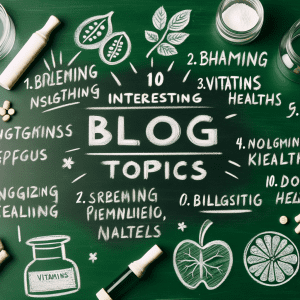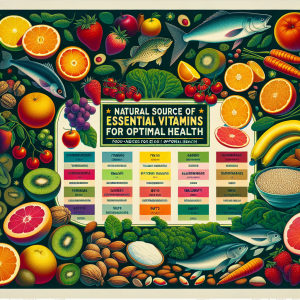Understanding the Importance of Magnesium for Mental Well-Being
Did you know that taking care of your mental health might be as simple as focusing on a key mineral in your diet? We’re talking about magnesium, the unsung hero of mental well-being. Often overshadowed by its mineral cousins like calcium and potassium, magnesium plays a crucial role in maintaining our mental health. Let’s dig deeper into why you should include more magnesium in your life.
Why Magnesium is a Mental Health Game-Changer
Magnesium is a powerhouse when it comes to influencing neurological functions. Its role extends far beyond keeping your muscles relaxed; magnesium is also crucial for brain biochemistry. Here’s how:
- Neurotransmitter Regulation: Magnesium is essential for the regulation of neurotransmitters, which send messages throughout your brain and nervous system.
- Serotonin Production: Magnesium aids in the production of serotonin, the “feel-good” hormone. Low levels of serotonin are often linked with depression and anxiety.
- Stress Response: This mineral helps to balance the body’s stress response by regulating the release of stress hormones like cortisol.
If you’re interested in more wellness content, check out some popular wellness channels on Telegram for tips and updates.
Recognizing Magnesium Deficiency
Before you rush to stock up on magnesium supplements, it’s important to know if you’re currently deficient. Here are some common symptoms:
- Fatigue and Weakness: Feeling unusually tired? It might not just be your hectic schedule.
- Muscle Cramps: Frequent cramps and spasms can be a sign of magnesium lack.
- Mental Health Issues: Anxiety, irritability, and mood swings could be tied to magnesium deficiency.
- Sleep Disorders: Magnesium influences sleep-regulating hormones, so deficiencies could lead to insomnia.
Consider adding more magnesium-rich foods such as spinach, almonds, and avocados to your diet, or consult a healthcare provider for supplementation advice.
Ways to Increase Magnesium Intake
Getting enough magnesium doesn’t have to feel like a chore. Here are some simple and tasty ways to boost your magnesium levels:
- Eat More Greens: Leafy greens like spinach and kale are excellent sources of magnesium.
- Snack on Nuts and Seeds: Almonds, sunflower seeds, and cashews can be delicious additions to your diet.
- Lean on Legumes: Beans, lentils, and chickpeas are packed with magnesium.
- Whole Grains: Opt for whole grains like brown rice and quinoa.
For the latest health updates and tips, explore various health and fitness Telegram channels that offer valuable content on maintaining overall well-being.’
Consulting Healthcare Providers
Self-diagnosis can be tricky. Always consult a healthcare provider before making significant changes to your diet or beginning a new supplement regimen. They can conduct tests to confirm if you indeed have a magnesium deficiency and recommend the most effective form and dosage for magnesium supplements.
Your mental health is priceless, and something as simple as incorporating magnesium into your diet can make a world of difference. Why not give it a shot?
Eager to broaden your knowledge on health topics? Luckily, there are several wellness content on Telegram channels that can keep you informed and motivated on your journey to better health.
So there you have it! With magnesium being so crucial for mental well-being, adding more of this vital mineral to your diet could be the game-changer you’ve been looking for. Here’s to a healthier, happier you!




